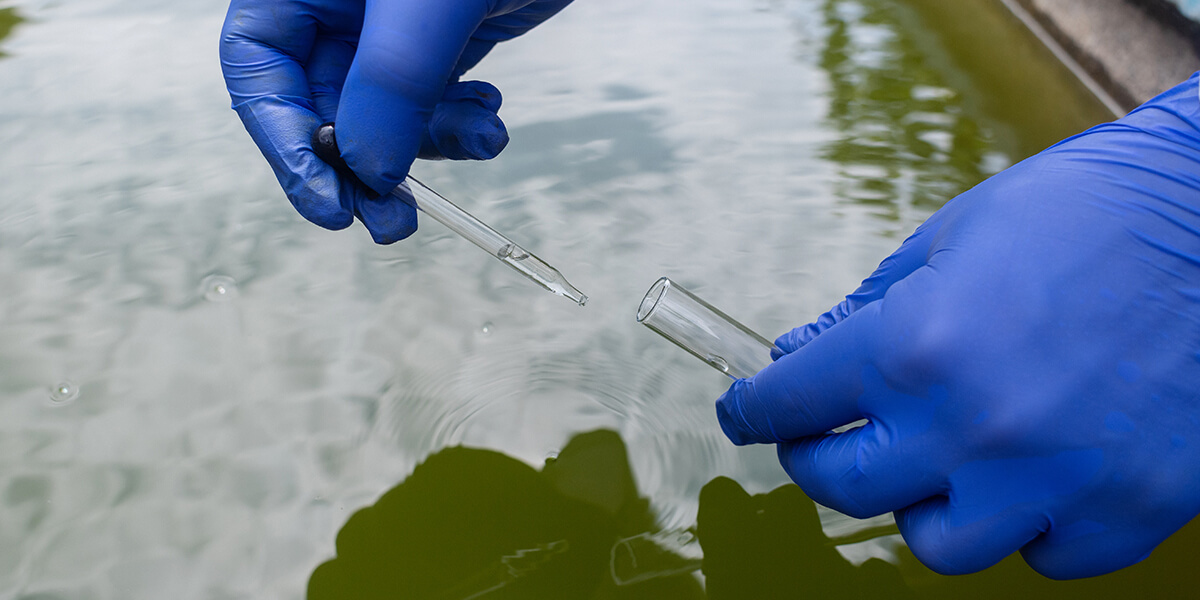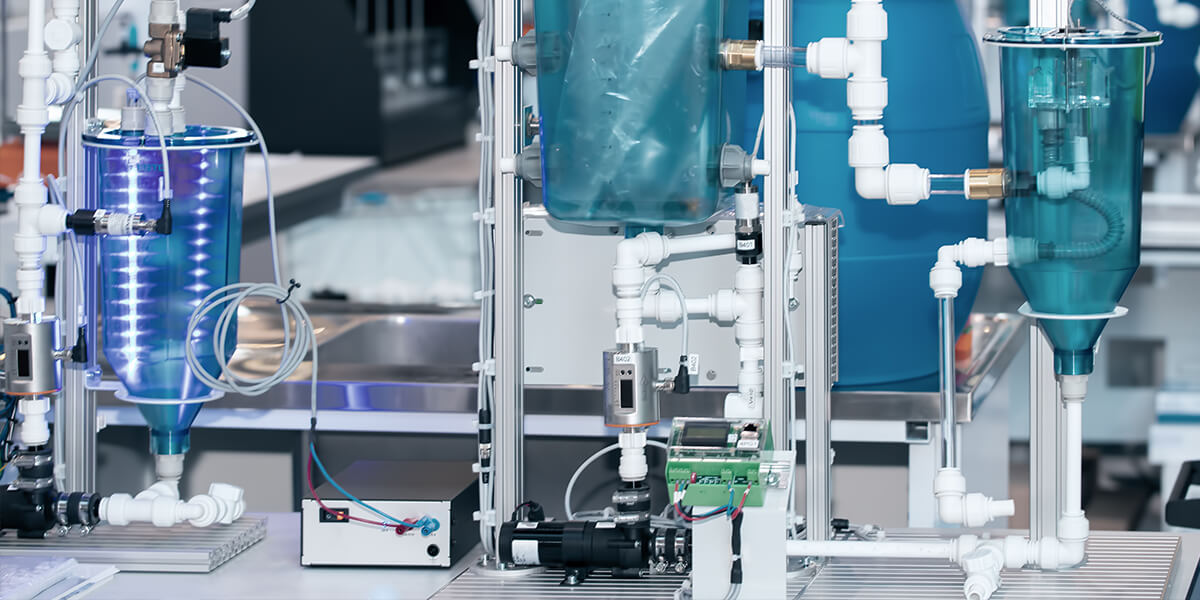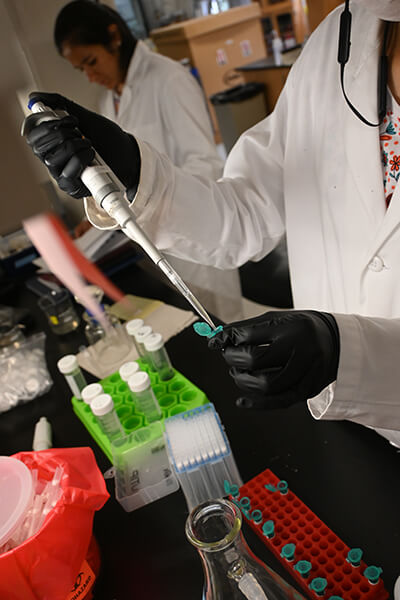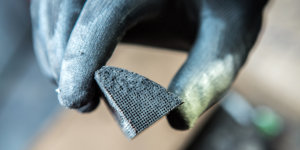
The USC ReWater Center (Water ReUse and Resource Recovery Center) proposes a new paradigm of potable reuse.
The history of California is inseparable from the history of how water has been sourced, secured, routed and used – and now, reused.
The drought of over two decades across the Southwestern states has called for a new paradigm of “potable reuse”: the process of combining elements of wastewater reclamation and drinking water treatment to create a local, sustainable and drinkable water supply. In Los Angeles, the mayor’s office has the goal to recycle 100% wastewater and source 70% of water locally by 2035. This mindset isn’t only relevant to Southern California; potable reuse has the potential to be applied nationally and globally as a proactive measure against climate change.
Its success will depend on new materials, processes and systems that meet public health, energy and sustainability objectives. USC is at the forefront of this research, with key researchers including Amy Childress, Adam Smith, Dan McCurry and Adam Simpson, and documentation and outreach efforts spearheaded by lecturer and filmmaker Daniel Druhora.
Now, USC has established a knowledge-exchange consortium with two other major hubs of water resilience research in the drought-stricken Southwest: the University of Nevada-Reno (UNR) and the University of Arizona (UA). The initiative has been awarded a $12.3M cooperative agreement for phase one of a three-phase $38 million program under a cooperative agreement with the U.S. Army Corps of Engineers, Engineer Research and Development Center, Construction Engineering Research Laboratory (USACE ERDC-CERL).
$11.34 million of the grant is assigned to establishing the USC ReWater Center (Water ReUse and Resource Recovery Center), based at CEE and led by Childress as Principal Investigator (PI). The goal of the center is to consolidate research for water treatment technologies, as well as advancing education about water reuse and facilitating the communication of technical and regulatory information.
“In the context of water science, clear and strategic science communication is pivotal for the new ReWater Center,” explained Druhora. “Our success hinges on conveying complex research in practical terms, fostering public understanding and support. Adapting innovative methods to share our story is paramount, as the acceptance and implementation of our findings rely on effective communication.”
That process starts in the lab. We took a tour around the water research hub in USC’s Biegler Hall to find out what’s on:

Amy Childress
Professor of Civil and Environmental Engineering
“As Director of the ReWater Center, I look forward to working collaboratively with a team of academic researchers alongside industrial, municipal and government partners to increase knowledge and understanding of water reuse and resource recovery. Our objectives directly address the UN Sustainable Development Goal of clean water and sanitation as well as the NAE Grand Challenge of providing access to clean water. The solutions we seek will balance water quality objectives with energy, nutrient and resource extraction as well as environmental aspects associated with residuals disposal.
In my lab, we pursue holistic and realistic solutions to the problem of finite water resources. We address contaminant and energy challenges including process innovation in pressure-driven membranes systems, analysis of integrated systems of water reuse and desalination, and interface and material aspects of membrane processes.”
Adam Smith

USC students conduct water treatment research in the Biegler Hall labs
Associate Professor of Civil and Environmental Engineering
“Wastewater should be considered a rich resource of valuable materials that can be recovered, including reuse water, nutrients and energy. My research associated with the ReWater Center focuses on improving efficiency of potable water reuse and ensuring safety by investigating biological and chemical contaminants of emerging concern.
We envision a paradigm shift away from energy intensive treatment processes that recover few resources, toward fully anaerobic processes that improve the ecoefficiency of water management. These systems generate a high-quality effluent while converting organics in wastewater to methane-rich biogas, a renewable energy source. We are further investigating compatible downstream processes for efficient nutrient management, known as membrane biofilm reactors.
My research also investigates the fate of biological contaminants, such as antibiotic resistance and pathogenic bacteria, and chemical contaminants such as per- and polyfluoroalkyl substances (PFAS) and microplastics across conventional and emerging treatment processes. We aim to better understand contaminants of emerging concern and develop remediation strategies as part of water reuse.”
Daniel McCurry
Dr. Shiao-Ping Siao Yen Early Career Chair in Civil and Environmental Engineering and Assistant Professor of Civil and Environmental Engineering
“My group works on two main areas related to water reuse. We study the transformation pathways of chemical contaminants as they interact with water reuse treatment systems, especially oxidative processes. By understanding how byproducts form, we can propose treatment modifications to minimize their formation, while not compromising on disinfection. We also focus on the development of treatment technology for more sustainable contaminant destruction.
My overall research goal is to enable production of recycled wastewater that is even safer than conventional tap water, to promote consumer acceptance of water recycling as a sustainable solution to water scarcity. Projected impacts include the development of treatment technology for recycling wastewater using less energy and fewer chemical inputs than current practice, and improved means of identifying and quantifying potentially hazardous chemicals in wastewater.”
Adam Simpson
Assistant Professor of Civil and Environmental Engineering
“My research focuses on contaminants and toxic transformation products in water and food, and I’m also interested in complex environmental materials like soil. Coupled with my analytical chemistry expertise is the use of cellular assays to screen environmental contaminants, distinguishing particularly harmful contaminants from those that are less harmful.
Using the Chinese hamster ovary (CHO) cell chronic cytotoxicity assay, we also screen water concentrates for micropollutant toxicities. My research group will study toxicological assays for product and residual streams in potable reuse systems. This enables us to assign more effective potable reuse systems so that consumers can be assured of high-quality water.
As part of my research on chemical exposure through food and water, I also aim to investigate the relationship between socioeconomics and community demographics and the level of contaminant exposures in community water supplies. Through an environmental justice lens, this research will allow us to prioritize which locations should receive greater priority for investment in effective treatment technologies.”
Published on August 16th, 2023
Last updated on August 17th, 2023











